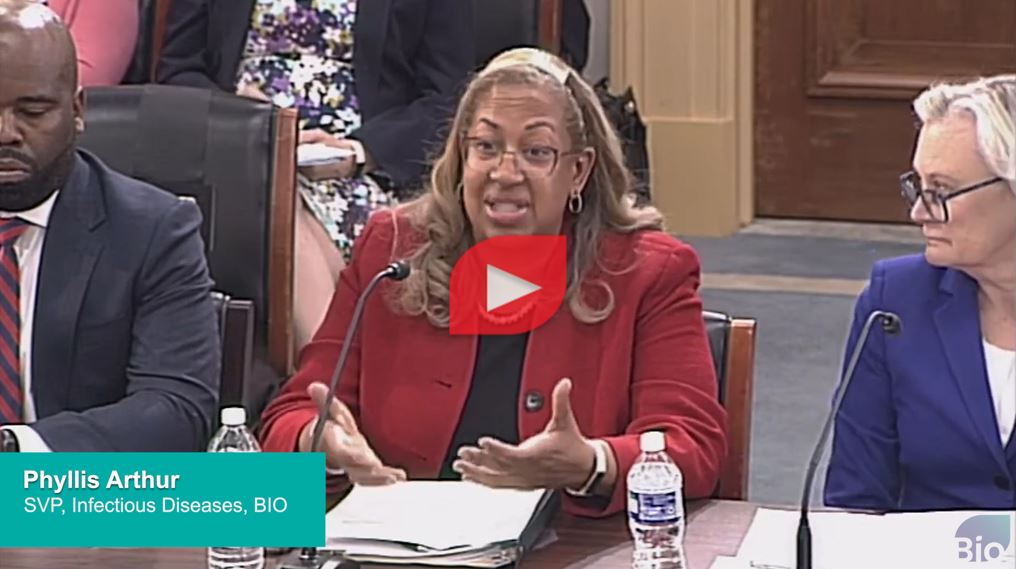On June 13, the House Energy & Commerce Health Subcommittee held a hearing, Legislative Solutions to Bolster Preparedness and Response for All Hazards and Public Health Security Threats. Phyllis Arthur, SVP of Infectious Disease and Emerging Science Policy at the Biotechnology Innovation Organization (BIO), testified about the importance of reauthorizing the Pandemic and All-Hazards Preparedness Act (PAHPA) and how the U.S. government can better prepare for the next pandemic.
“This is an important moment for our nation as we emerge from a, hopefully, once-in-a-generation pandemic allowing us to take stock of lessons learned. The important question to ask is, are we more prepared today than we were in 2019? Unfortunately, it is not evident that we are,” said Arthur in prepared testimony.
Arthur noted that we could learn a lot about future pandemic preparedness from COVID-19, when we were able to develop and deliver vaccines in about 300 days.
“That kind of partnership where the expertise and experience of industry—for manufacturing, clinical trial development, knowing how to manufacture products well—was really coupled well with the government’s leadership and facilitating that process. This is the kind of partnership that we need in the interpandemic period so that we’re actually ready to go in less time than one year,” she said.
“Operation Warp Speed is a really good example of that,” she continued.
PAHPA should include PASTEUR
“The antibiotics market is a broken market, and having antibiotics available to assist is not just pivotal to our public health and everyday delivery of our public health and surgeries. It’s also vital in our all-hazards response,” said Arthur.
She called for the inclusion of The PASTEUR Act in PAHPA because it “enables a marketplace for these products that are being developed by industry, sometimes in partnership with [the Biomedical Advanced Research and Development Authority] and the government. And so we need to have these products not just get developed, but go into a place where they can actually be sustained and be available to us.”
Under the legislation, antimicrobial manufacturers could receive between $750 million and $3 billion for new drugs over several years, ensuring the drugs can be commercialized while maintaining proper antimicrobial stewardship.
Not including the PASTEUR Act would be a “missed opportunity,” said Rep. Nanette Barragan (D-CA).
“Having antibiotics and antifungals to treat people in a rapid way is really important in a lot of disasters,” agreed Arthur. “There are many cases where microbial infections can cause death.”
Disease X
Rep. Lori Trahan (D-MA) noted bipartisan support for preparing for “Disease X” unknown viral threats, and the inclusion of her bill, The Disease X Act. However, she expressed disappointment with the flat/static funding for this kind of research.
In response, Arthur highlighted the need to advance monoclonal antibodies, platform technologies, and oral antivirals to replicate what we did preemptively with smallpox and applied during the MPOX outbreak.
March-in rights are wrong
Rep. Larry Bucshon, M.D. (R-IN) asked about march-in rights under consideration.
“Less is more” for PAHPA reauthorization, he said, asking how changes to BARDA and the Strategic National Stockpile (SNS) contrast the IP and march-in rights being considered.
“Policies on reasonable pricing and march-in rights have been tried elsewhere and have shown many negative impacts,” said Arthur in response. This would present an “even greater threat” to medical countermeasures.




